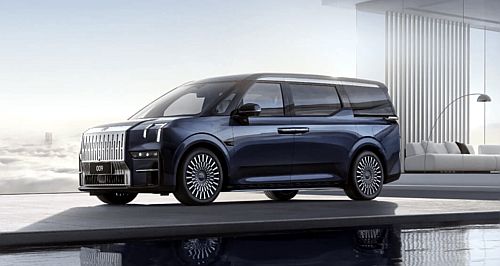News - General NewsChinese EV sales drop as EU tariffs take holdEuropean imported EV sales fall up to 45 per cent as anti-China import tariff felt20 Aug 2024 By MATT BROGAN THE effect of the European Union’s new import tariffs on Chinese-made electric vehicles has begun to show its impact on regional sales figures.
Sales of imported models, including those from BYD and MG, fell by up to 45 per cent last month (July) when compared with those in June, according to research agency Dataforce, which compiled results across the 16 member countries that have reported July sales figures to date.
Though the drop may have been exaggerated by OEMs rushing to get vehicles into dealerships before the levy’s July 5 introduction, Dataforce suggests it is merely a blip on the radar, saying sales of Chinese imports will eventually continue their steady rise.
From a standing start in 2019, Chinese electric vehicle importers have seen steady growth across most European markets, their share of sales in the bloc hitting 8.5 per cent last month, up from 7.4 per cent the year prior.
In Germany, Chinese brands comprised eight per cent of all vehicle registrations in July, down from 13 per cent in June, while French sales fell three per cent to five.
The report states that while EVs still represent just a small part of the entire European market, they are set to dominated over time as regulations push ICE cars out.
Looking at July alone, we note that BYD sold three times the number of EVs in Europe than it did a year earlier. MG, however, posted a 20 per cent drop in sales, while Polestar sales fell 42 per cent.
BYD’s future production facility in Hungary is likely to see sales growth continue – its European-made vehicles avoiding an importation tax of as high as 38.1 per cent on top of the EU’s standard 10 per cent import duty already in effect.
The European Commission’s import tariff aims to protect European manufacturers from what is describes as a “flood of cheaper imports”.
It comes just months after the United States announced similar plans, aiming to quadruple duties for Chinese-made EVs to 100 per cent on top of its existing 7.5 per cent important tax.
Europe’s Chinese EV levy will become permanent in November, barring a deal between Brussels and Beijing. The tariff debate has coincided with a global slowdown in EV uptake that has put pressure on OEMs not only in Europe and China, but across the globe.
In recent months, OEMs including Audi, BMW, Ford, General Motors, Mercedes-Benz, Stellantis, Tesla, Volkswagen and Volvo have made statements regarding lowering or delaying EV investments, a reduction in EV production forecasts, or on the reintroduction of older technologies, including range-extension or plug-in hybrid vehicles.
 Read more20th of August 2024  GMC’s BEV rollout continuesElectrification growth dip no barrier to GMC’s future plans, PHEVs to make a return15th of August 2024  Volkswagen Trinity flagship delayed: reportAdvanced self-driving model rescheduled for 2032 as VW reallocates investments6th of August 2024  Cooling demand prompts EV rethinkGerman luxury brands, suppliers change tack amid cooling EV demand26th of July 2024  Stellantis to fight China for EU footholdCEO Carlos Tavares says Stellantis will fight China for a place in Europe’s EV market26th of July 2024  Porsche waters down EV ambitionsLack of electric vehicle sales momentum prompts Porsche to reset its EV targets25th of July 2024  GMC, Chevrolet to continue with ICEProfits fuel GM’s ICE addiction, focus on mainstream internal combustion power remains23rd of July 2024  Volvo blames China for forecast growth cutSino-Swedish automotive manufacturer cuts 3% from its 2024 sales forecast18th of July 2024  EU may lower Chinese tariff for BMW, VWCompromise set to impact European OEMs which export EVs from China to Europe9th of July 2024  SAIC demands new EU tariff hearingBeijing and SAIC united in demanding new European Union tariff hearing for imported EVs8th of July 2024  VW Group to develop BEVs, PHEVs with SAICThree plug-in models and two EVs on the slate under collaboration between VW and SAIC3rd of July 2024  One-third global car parc Chinese by 2030Chinese cars to become the majority while traditional OEMs face obsolescence: report |
Click to shareGeneral News articlesResearch General News Motor industry news |
















Facebook Twitter Instagram